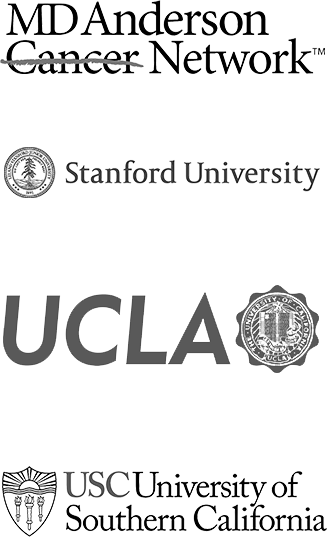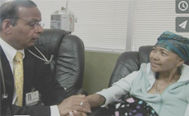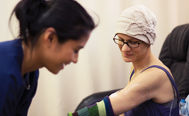Mammogram Screening
The quality and reliability of a breast cancer screening depends upon several factors such as frequency of screening exams, compliance with screening guidelines, and quality of screening. American Cancer society recommends women of average risk to start mammogram screening at 40 or 50. Women whose risk is high for breast cancer should have their first screening at a younger age than a woman of average risk. When you actually have your first mammogram is a discussion to have with your doctor who knows your medical history.
One of the most knowledgeable authorities on cancer and cancer treatment is Dr. Sant Chawla of the Cancer Center of Southern California. He develops individualized treatment plans for patients across the spectrum of cancer types. Dr. Chawla encourages his patients to learn as much as they can about their disease and ask questions about treatment. If you have close family members with breast cancer or you want to learn about preventive measures, then Dr. Chawla would recommend your being pro-active about having yourself screened and learn more about the disease.
Mammogram Screening and Diagnostic
A screening mammogram is intended to detect breast cancer when a developing tumor is too small to be felt in a breast self-examination or doctor check-up. Successful treatment is greatly improved when cancer is diagnosed at an early stage before a tumor has grown and spreads. Women usually have two x-rays views per breast although larger-breasted women might require additional views.
There is a second type of mammogram, which is used for diagnostic purposes. A diagnostic mammogram is used to examine an abnormality discovered in a previous screening. After x-rays are taken of the suspicious matter, a radiologist immediately reviews the images in case additional exposures are needed.
When An MRI Is Recommended
Some women might need an MRI along with a mammogram for screening or diagnostic purposes. An MRI is recommended in circumstances of:
- Breast cancer diagnosis and MRI used to measure tumor size and identify any other tumors in the breast.
- Breast cancer diagnosis and examination of second breast for signs of a tumor.
- High risk factor for cancer and MRI required along with yearly mammogram.
Our Specialists Can Help You
If you have been diagnosed with breast cancer and seek a second opinion, contact the Cancer Center in Santa Monica. Our doctors are renowned experts in cancer care and internationally known for their work in advanced drug therapeutics. Call today at 310-552-9999 to schedule a consultation.
Next, learn about what a lump in breast could mean.


